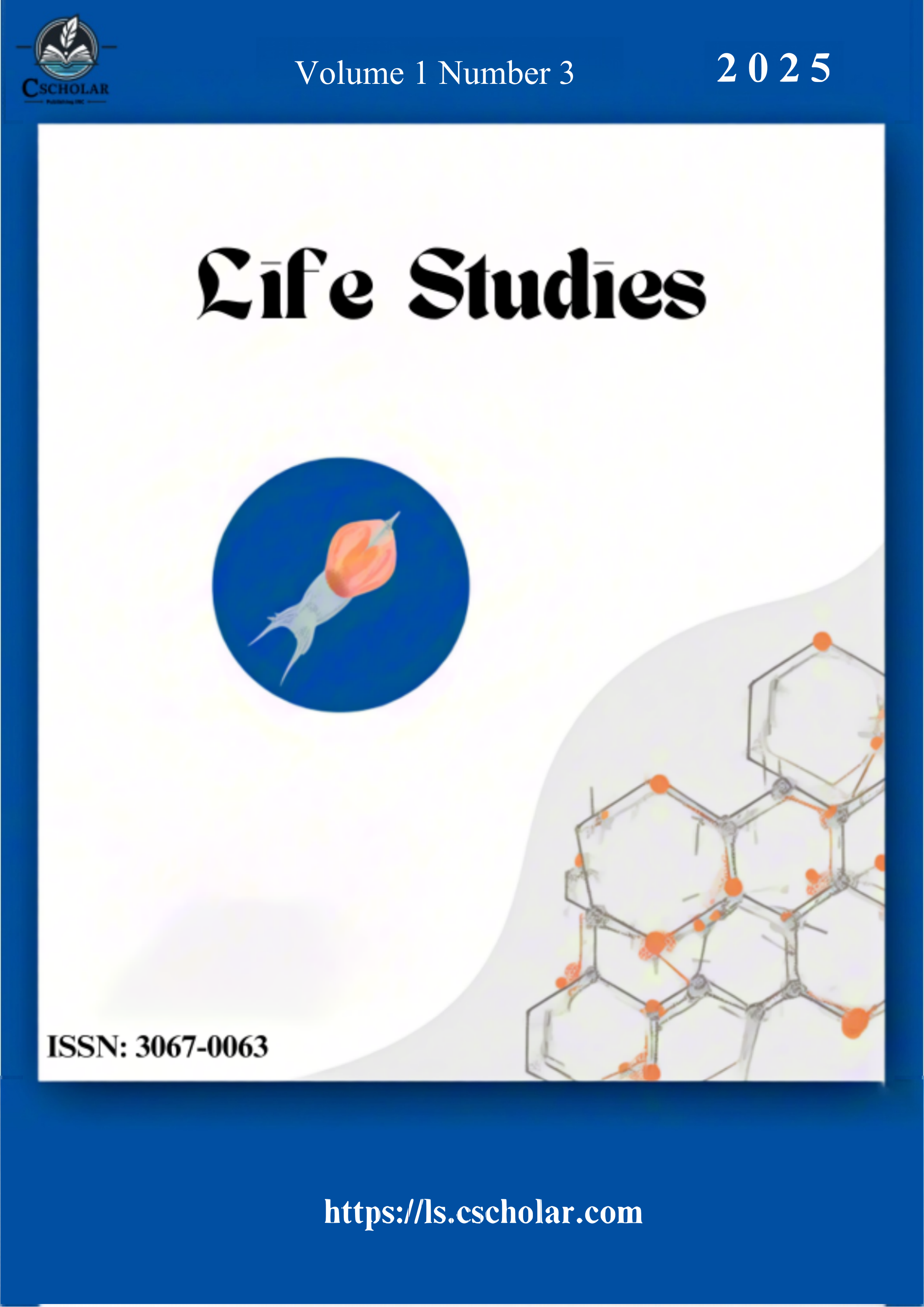Humanizing Medicine in the Age of Artificial Intelligence: Challenges, Transformations, and Prospects for Medical Humanities
DOI:
https://doi.org/10.71204/3cjmek14Keywords:
Medical Humanities, Artificial Intelligence, Algorithmic Bias, Narrative Medicine, Clinical JudgmentAbstract
Artificial intelligence (AI) is rapidly reshaping clinical knowledge, workflow, and relationships, and it is doing so at a pace that presses the medical humanities to reinterpret their aims and methods. This article argues that, far from being peripheral to the algorithmic turn, the medical humanities are central to judging when, how, and under what conditions AI supports humane care. Drawing on scholarship from bioethics, science and technology studies, narrative medicine, and health services research, I first situate AI’s rise within long-standing debates about evidence, expertise, and the moral foundations of medicine. I then develop a critical analysis of the principal challenges AI poses for the human dimensions of care, including opacity and accountability, bias and justice, privacy and consent, erosion of clinical judgment and identity, and the risk of substituting datafication for meaning. In a parallel analysis, I identify opportunities where medical humanities can shape AI toward more trustworthy, equitable, and relationally sensitive practices: augmenting empathy and narrative attention with computational tools, reframing explainability as a communicative achievement rather than a technical property alone, embedding participatory design with patients and communities, renovating curricula to integrate critical data literacy with humanistic formation, and aligning governance with values such as dignity and solidarity. The article concludes by proposing a practical research and policy agenda in which humanities scholars collaborate with clinicians, patients, and engineers to evaluate AI not only by its predictive or operational performance but also by its contributions to understanding, moral repair, and shared decision-making in the everyday clinic.
References
Beauchamp, T. L., & Childress, J. F. (2019). Principles of biomedical ethics (8th ed.). Oxford University Press.
Challen, R., Denny, J., Pitt, M., Gompels, L., Edwards, T., & Tsaneva-Atanasova, K. (2019). Artificial intelligence, bias and clinical safety. BMJ Quality & Safety, 28(3), 231–237.
Char, D. S., Shah, N. H., & Magnus, D. (2018). Implementing machine learning in health care — Addressing ethical challenges. The New England Journal of Medicine, 378(11), 981–983.
Dignum, V. (2019). Responsible artificial intelligence: How to develop and use AI in a responsible way. Springer. https://doi.org/10.1007/978-3-030-30371-6
Floridi, L., Cowls, J., Beltrametti, M., Chatila, R., Chazerand, P., Dignum, V., … Vayena, E. (2018). AI4People—An ethical framework for a good AI society: Opportunities, risks, principles, and recommendations. Minds and Machines, 28(4), 689–707.
Ghassemi, M., Oakden-Rayner, L., & Beam, A. L. (2021). The false hope of current approaches to explainable AI in health care. The Lancet Digital Health, 3(11), e745–e750.
Greenhalgh, T., & Papoutsi, C. (2018). Studying complexity in health services research: Desperately seeking an overdue paradigm shift. BMC Medicine, 16, 95.
Jobin, A., Ienca, M., & Vayena, E. (2019). The global landscape of AI ethics guidelines. Nature Machine Intelligence, 1, 389–399.
Kerasidou, A. (2021). Artificial intelligence and the ongoing need for empathy, compassion and trust in healthcare. Bulletin of the World Health Organization, 99(9), 605–606.
Kleinman, A. (1988). The illness narratives: Suffering, healing, and the human condition. Basic Books.
London, A. J. (2019). Artificial intelligence and black-box medical decisions: Accuracy versus explainability. Hastings Center Report, 49(1), 15–21.
Mittelstadt, B. D., Allo, P., Taddeo, M., Wachter, S., & Floridi, L. (2016). The ethics of algorithms: Mapping the debate. Big Data & Society, 3(2), 1–21.
Morley, J., Machado, C. C. V., Burr, C., Cowls, J., Joshi, I., Taddeo, M., & Floridi, L. (2020). The ethics of AI in health care: A mapping review. Social Science & Medicine, 260, 113172.
Obermeyer, Z., & Emanuel, E. J. (2016). Predicting the future — Big data, machine learning, and clinical medicine. The New England Journal of Medicine, 375(13), 1216–1219.
Obermeyer, Z., Powers, B., Vogeli, C., & Mullainathan, S. (2019). Dissecting racial bias in an algorithm used to manage the health of populations. Science, 366(6464), 447–453. https://doi.org/10.1126/science.aax2342
Price, W. N., II, & Cohen, I. G. (2019). Privacy in the age of medical big data. Nature Medicine, 25, 37–43.
Rajkomar, A., Dean, J., & Kohane, I. (2019). Machine learning in medicine. The New England Journal of Medicine, 380(14), 1347–1358.
Reddy, S., Fox, J., & Purohit, M. P. (2019). Artificial intelligence-enabled healthcare delivery. Journal of the Royal Society of Medicine, 112(1), 22–28.
Saria, S., Butte, A., & Sheikh, A. (2018). Better medicine through machine learning: What’s real, and what’s artificial? PLoS Medicine, 15(11), e1002699.
Tonekaboni, S., Joshi, S., McCradden, M. D., & Goldenberg, A. (2019). What clinicians want from explainable AI. npj Digital Medicine, 2, 90.
Topol, E. (2019). Deep medicine: How artificial intelligence can make healthcare human again. Basic Books.
Vyas, D. A., Eisenstein, L. G., & Jones, D. S. (2020). Hidden in plain sight — Reconsidering the use of race correction in clinical algorithms. The New England Journal of Medicine, 383(9), 874–882.
Wachter, S., Mittelstadt, B., & Floridi, L. (2017). Why a right to explanation of automated decision-making does not exist in the GDPR. International Data Privacy Law, 7(2), 76–99.
World Health Organization. (2021). Ethics and governance of artificial intelligence for health: WHO guidance. World Health Organization.
Downloads
Published
Issue
Section
License
Copyright (c) 2025 Li Jia, Xianghan Du (Author)

This work is licensed under a Creative Commons Attribution 4.0 International License.
All articles published in this journal are licensed under the Creative Commons Attribution 4.0 International License (CC BY 4.0). This license permits unrestricted use, distribution, and reproduction in any medium, provided the original author(s) and source are properly credited. Authors retain copyright of their work, and readers are free to copy, share, adapt, and build upon the material for any purpose, including commercial use, as long as appropriate attribution is given.





